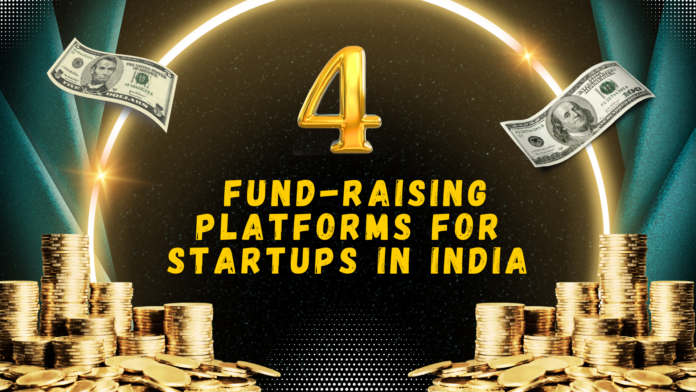Table of Contents
Startup Funding Opportunities in India
If you have a great business idea but lack the necessary funds to launch your startup, don’t worry! The Indian government and private investors offer multiple funding options to help entrepreneurs kickstart their businesses. With the help of these Fundraising sites for startups, you can easily achieve your dreams to be an entrepreneur.
Here, we will discuss the major ways to raise funds for startups initially, their application process, key benefits, and potential risks. Additionally, we will discuss what happens if a business fails and how loan repayment works under these schemes.
Major Sources of Startup Funding in India
There are four primary funding sources for startups in India:
MUDRA Loan Scheme – Small Business Loan (₹25,000 to ₹10 Lakh)
The MUDRA Loan Scheme (Micro Units Development & Refinance Agency) is a government initiative that provides loans ranging from ₹25,000 to ₹10 lakh to small businesses and startups. So now you can start from 25k only to reach your goals. Under this scheme in under financial Year 2024-2025 government sanctioned 3Cr loans.
Who is eligible For a Mudra Loan?
- Small business owners and new entrepreneurs
- Retailers, shopkeepers, and service providers
- Individuals looking to start a micro or small-scale business
Key Benefits:
No collateral required (Asset-Free Loan)
Low-interest rates
Simple application process
How to Apply For Mudra Loan?
- Visit any nationalized bank, NBFC, or microfinance institution
- Apply online at www.mudra.org.in
What happens When You Take Mudra Loan and your business fails?
If a person is not able to repay the loan, banks offer loan restructuring options, allowing for an extended period for paying the amount. However, if the default continues, it may impact the borrower’s credit score.
CGTMSE – Credit Guarantee Scheme for MSMEs (₹2 Crore Without Collateral)
What is CGTMSE? How you can raise funds from this scheme?
The Credit Guarantee Fund Trust for Micro and Small Enterprises (CGTMSE) is a government-backed scheme that provides support to micro and small entrepreneurs with loans of up to ₹2 crore without collateral to eligible businesses.
Which Startup is eligible for CGTMSE loan ?
- Manufacturing startups
- Service-based businesses
- Micro, Small, and Medium Enterprises (MSMEs)
Key Benefits Of CGTMSE Fund Rising For Startups
- Get a loan without any security or collateral
- Government support ensures easy approval
- Ideal for first-time entrepreneurs
How to Apply For CGTMSE?
- Visit www.cgtmse.in for details and contact banks
- Register as an MSME at www.udyamregistration.gov.in
What happens in CGTMSE loans if the business fails?
The government covers 50-75% of the loan amount, but if the business is not able to pay, banks have the right to process the matter with legal authority and rules.
Startup India Incubation Scheme – Grants & Support (₹1 Crore Funding)
What is the Incubation Scheme – How does it fund initial-level businesses?
Under the Startup India Initiative, the government has set up Incubation Centres that provide funding, mentorship, and legal support, infrastructure to startups. They have state government schemes as well included in this process
Who is eligible For the Incubation Scheme?
- Innovative startups
- Technology and research-based businesses
- Key Benefits:
- Grants up to ₹50 lakh – ₹1 crore
- Support in legal, accounting, and networking and Infrastructure as well
- Expert mentorship for business growth
How startup can get funds from an Incubation scheme?
- Register your startup at www.startupindia.gov.in
- Search for Startup Incubation Centres and apply
What happens if the startup fails?
Many incubation centers provide grants (which do not require repayment). If the startup is processed with a loan then the owner/entrepreneur is responsible for paying all the amount as per guidelines.
Venture Capital & Angel Investment – Private Funding for Startups
What is Angel Investment?
For high-growth and big-budget startups, venture capital (VC) firms and angel investors provide funding in exchange for equity (ownership) in the company. They invest their money and time in your idea to get fixed ownership. Here you share your business with investors to spread it for mass offerings. Later on, these companies may go for IPO as well.
Who is eligible For Angel Investment?
- Tech startups and high-potential businesses
- Innovative business models with scalability
Key Benefits
- Raise funds without taking a loan
- Access to industry experts and business networks
How to Apply?
- Connect with investors on AngelList or 100X.VC
- Prepare a solid business pitch and attend startup meetups
Shark Tank India also works on the same concept where big business sharks invest in innovative ideas and work with startups on fixed equity.
What happens if the business fails under Angel Investment Funding?
If the startup fails, investors lose their money, as they invest in equity and take on the risk. There is no repayment system both the parties bear the loss as per the agreement and equity.
Important Considerations Before Raising Funds For Startups
- Planned and well-researched business model – Taking funds without a clear plan can be risky.
- As per the business model and scalability, you should know the difference between loans and grants– Loans need to be repaid, while grants do not.
- A good leader and teacher can show you the path, so you need a good mentor to find the right funds at your convenience.
- Always measure the risk and impact of your action – Government schemes offer flexibility, but private loans and investor funding have different risks.
Conclusion
Lack of capital should never stop you from launching a startup! If you apply for funding through the right channels, the government, banks, and private investors are ready to support your business idea.
🔥34













